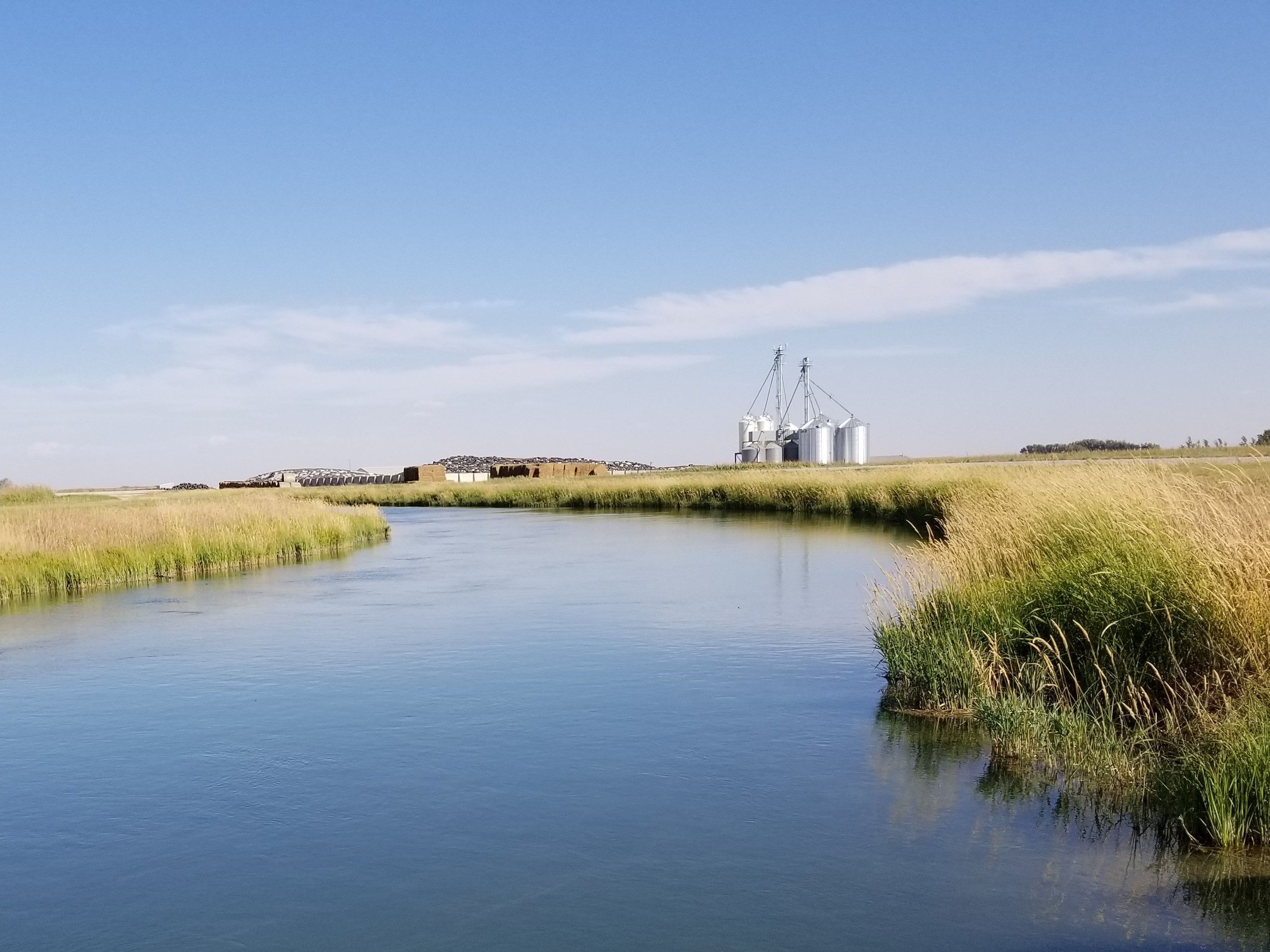LNID Board Meets with Agriculture Minister RJ Sigurdson
June 12, 2024

The LNID board of directors met with Agriculture Minister RJ Sigurdson in Calgary on May 2, 2024. Five topics were discussed:
1. Drought in 2023 caused damages to some crops in LNID. The LNID Board advocated for compensation for these extraordinary losses. LNID irrigators experienced significant 30-40% losses in winter crops such as winter wheat, alfalfa and grass that were not fully covered by insurance. The board heard that the rationale for not sending compensation for crop losses was that for those who had insurance through Agriculture Financial Services Corporation (AFSC), there were only a few claims triggered in the LNID region. Although the Board was hoping for a different outcome, we are confident that the consideration of this issue received the time and attention that it deserved.
2. One way to mitigate drought in Alberta is to divert, store and use more of our entitlement under the Master Agreement on Apportionment. It was estimated that 58% of the naturalized flow within the South Saskatchewan River Basin was passed to Saskatchewan in 2023, exceeding our obligation. To help Alberta make decisions on dam releases with better information, the Board discussed with Minister Sigurdson increasing the frequency and locations of measurements.
3. The diversion to the Alberta Government-owned Lethbridge Northern Headworks canal and flume system is located downstream of the Oldman River Dam. The diversion relies on a weir across the riverbed to maintain a minimum water level for allowing flow into the system. This concrete weir needs repairs. The Board discussed this with Minister Sigurdson to bring attention to the deteriorating condition of the weir, and the opportunity to mitigate risks to LNID water users and the Alberta economy through proactive budgeting and scheduling of rehabilitation of this critical infrastructure.
4. The Board expressed appreciation to Minister Sigurdson for the $5.5M increase in funding to the Irrigation Rehabilitation Program. LNID and the other 10 irrigation districts access IRP funding, first implemented in 1969, to rehabilitate irrigation conveyance systems. 15 years ago, a pipeline could replace an open canal system for approximately $1200-$1300 per serviced acre. This cost is now over $2500/acre. The increased funding will help to offset the increased costs to continue rehabilitating our works. The improved efficiencies translate to drought resilience and staged expansion using a portion of our saved water, and ultimately better crop yield and quality through improved service to our irrigators.
5. The need for effective communication between the operations personnel of both the Water Infrastructure and Operations Branch of AGI, and operations staff at LNID is essential for management of water deliveries through the Lethbridge Northern Headworks system. Good coordination with WIOB/AGI allows LNID to regulate our internal storage and spill systems and better match irrigation demands. The Board reinforced this with Minister Sigurdson. LNID received a positive response and together we have facilitated weekly water meetings to coordinate deliveries and address questions and concerns on items of mutual interest on a regular basis. In addition, we are pleased to have in-kind AGI support in customizing a risk-based water forecasting tool that will incorporate the current storage and estimated net watershed yield available to LNID.